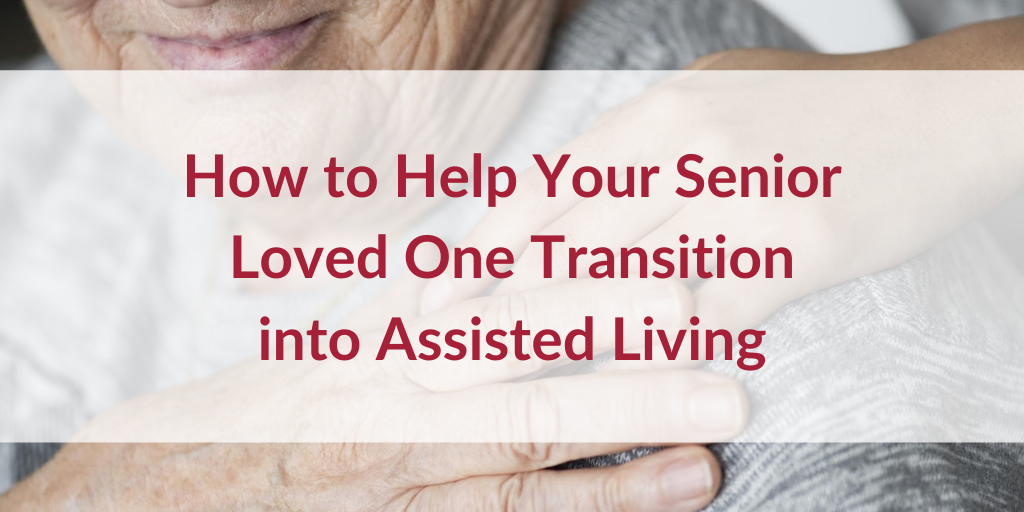
How to Help Your Senior Loved One Transition into Assisted Living

Photo via Rawpixel
Moving a senior loved one into an assisted living facility can be challenging, no matter how prepared you think you are for the process. This is a major transition for both seniors and close family members like you. Family caregivers face all kinds of emotional and logistical barriers as they try to make the best possible decision for their senior loved ones. As you approach this complicated move, consider the following tips to make the process a little easier.
Recognize Behavioral Signs
Certain behavioral signs may indicate that a move into assisted living would be beneficial for your senior loved one. According to Nation, some serious red flags to watch out for include recent accidents in the home, slow recovery from illnesses, and rapidly declining medical conditions. Some more subtle signs may include changes in weight, increasing physical weakness, neglect to personal hygiene, and isolation. If you notice these indicators, it may be time to start talking about assisted living.
Get Your Loved One Involved
Moving into assisted living can be very upsetting for seniors, especially when they aren’t included in the decisions being made. So, make sure to get your loved one involved and keep them up to date on everything that is going on.
Choosing an assisted living community together is important for finding a good fit. Your loved one may have specific desires or requirements that you’re not aware of, so listen to their opinions and concerns with an open mind. Research facilities to find a few that offer the kinds of features and amenities that your loved one is looking for, and take some time to visit them together in person. AARP recommends encouraging your loved one to talk to staff, administrators, and residents when you visit so they can get a sense of what the assisted living facility is like. With the average cost of assisted living at $4,000 a month, you’ll need to consider your or your loved one’s budget as well. A long-term care insurance policy will likely help cover the cost of assisted living, but you may still have to pay some out of pocket.
Be Gentle and Respectful
Being sensitive with your senior loved one is essential for having productive, solution-oriented conversations about assisted living. Guideposts.com recommends picking your time and place carefully, avoiding noisy locations where your loved one may have a hard time hearing you or focusing on the conversation. Try to ask open-ended questions that prompt insightful answers. Be patient and listen to everything your loved one has to say, ensuring that they feel heard. While it’s perfectly normal to feel emotional during these discussions, try not to use emotionally loaded statements that will make your loved one feel guilty for causing worry.
Pay Attention to Your Own Feelings
Remember, moving a loved one into assisted living can be tough on you too. Pay attention to signs that you’re facing caregiver burnout, like declining mental or physical health and feelings of increasing irritation or anger over things that didn’t use to bother you. These signs may indicate that moving your loved one into assisted living is important for your own health and wellbeing as well. Caregivers can also benefit from the support of counselors or therapists. An expert can give you advice and tools to help you cope with the challenges you’ll face.
Find Support to Ease the Transition
Your senior loved one may also benefit from professional support as they make the move into assisted living. You can ease the transition by being involved in their move and helping them set up their new living area with familiar décor and furnishings. Visit frequently, and talk to the staff about your loved one’s preferences. You can also encourage them to participate in available activities and ask for their opinion on the kind of care they’re receiving. If your loved one is having a hard time accepting the change or struggling to feel at home in their new surroundings, encourage them to talk with a therapist
While transitioning a senior loved one into an assisted living community can have an emotional toll on all involved, it may be the best decision for your family. Your loved one will get the assistance they need while maintaining as much independence as possible. At the same time, you will finally get some peace of mind knowing your loved one is getting the level of care they deserve.
About the Author
Lydia Chan is the co-creator of Alzheimers.net, a website that aims to provide tips and resources to help caregivers. After her mom was diagnosed with Alzheimer's, she found herself struggling with finding balance between the responsibilities of caregiving and her own life. She is passionate about sharing her knowledge and experiences with caregivers and seniors.
